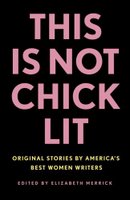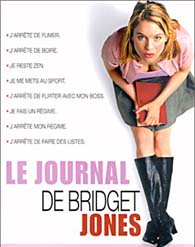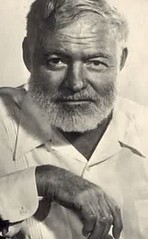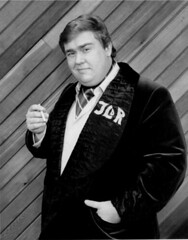 If you are in the habit of following such things, you know about a "controversy" over a collection of short stories, "This Is Not Chick Lit: Original Stories by America's Best Women Writers."
If you are in the habit of following such things, you know about a "controversy" over a collection of short stories, "This Is Not Chick Lit: Original Stories by America's Best Women Writers."
The hullabaloo, such as it is, stems from chick-lit writers (or "chick lit-istas," as I call them) feeling slighted and demeaned: the implication is that they aren't in the club of America's Best Women Writers.
(Before I step into this steaming pile of perfumed doo-doo, some disclosure: I am good friends with one of the writers who contributed to "This Is Not Chick Lit." It's a terrific collection, and I've discovered a couple of new writers by reading it.)
I didn't really care about what chick lit-istas thought until they busted an aneurysm when the book was first announced (also see here). On blogs and elsewhere, the "literary fiction" crowd struck back. And if you know anything about men, you know we can't resist a catfight.
Another disclaimer: I can't condemn chick lit because I haven't read any of it. The thing about chick lit is that, by definition, it's for chicks. These books are aimed at women readers; they (usually) lack the aims and ambition of literary fiction; (I am told) there's a lot of shopping and man bashing. Which I can’t say interests me.
In their defense, chick lit-istas will cite Jane Austen or Charlotte Bronte, two writers accused of 19th Century chick lit; the chick lit-istas invariably trot out these ladies when their genre is deemed Not Literary Enough For Serious Consideration.
Je ne sais quoi
Hell, let's just do a comparison. In one of my favorite books, "Jane Eyre," you have a plucky heroine (check), falls in love with Mr. Right (check), has competition from a woman hotter than she is (check), snags then loses Mr. Right (check), gives serious consideration to Mr. Wrong (check), and finally snags Mr. Right in the end (check). But in all this you have tragedy and real drama, a marriage that is called off at the last second, a madwoman in the attic, and Mr. Rochester getting burnt to toast and blinded.
This is not the stuff of "Bergdorf Blondes" or "Sex in the City."
So if chicks are the only ones reading chick lit, what do guys read?
I'm trying to imagine the male equivalent of chick lit, which one wisenheimer I know calls "dick lit." But really, dick lit has been prevalent in one form or another since someone bothered to put Homer on paper. ("The Iliad" and "The Odyssey" are the first certifiable dick-lit books).
In theory, dick lit c. 2006 should be about frat-house behavior that continues after college. But most of the men whose primary interests are beer, babes, and sports are reading Maxim rather than "Infinite Jest."
Horror, sci-fi, and crime, it can be argued, have a particularly male tint. But there's really only one Father of Contemporary Dick Lit, a man named Papa.
Yes, Ernest Hemmingway gave birth to modern macho-man fiction. His heroes fish. They drink and they hunt and they fight the good fight. They go to the bullfights and zinc bars. They hunt and box because they are Men. They treat women like crap because Hemmingway makes them whores.
Despite Hemmingway's many shortcomings, he did not hang a sign on displays of "For Whom the Bell Tolls" that said "No gurlz allowed." Hemmingway addressed universal concerns and themes that transcended gender, no matter how much hunting and bullfighting was involved.
I don't want to slam chick lit as one-dimensional, but to compare it to literary fiction borders on the desperate; the amount of Sturm und Drang from the chick lit-istas over "This Is Not Chick Lit" has the unmistakable stain of Thou Dost Protest Too Much. Granted, the subtitle "Original Stories by America's Best Women Writers" might be over the top, but it's hyperbole only because they left out Joyce Carol Oates and Jane Smiley, not Jennifer Weiner or Plum Sykes.
In the chick lit-istas' defense, you might argue that putting out a book that "slams" chick lit is the real stroke of desperation. Literary fiction sales are relatively small compared to chick lit, and a book that claims to be "not" chick lit is like putting out a book that is "not" sci-fi or horror.
But that's just it. The chick lit-istas have made the genre so popular that it overshadows many great female literary fiction writers, whose writing and aims are said to be so much higher than Candice Bushnell, Helen Fielding, etc.
A Papa in more ways than one
Truthfully, I can't say if chick-lit books are well-written — like I will repeat for the 1,057th time, I've never cracked one open — but the writing is besides the point, isn't it? It's the adventure of some Bridget Jones or Carrie Bradshaw wannabe, and if it's breezy fantasy. And I say, “no problemo.” Chick lit is commercial genre fiction, entertaining and light, and there's nothing wrong with that.
In the end, the quality of prose in genre fiction usually doesn't matter. (Most sci-fi reads like it was written by Billy Pocket Protector in 10th grade. You aren't there for elaborate sensory imagery or complex characters.)
For all the thousands of chick lit-istas who read this blog, here's some unsolicited advice. If you truly want to be considered one America's Best Women Writers — and there's no reason that you can't be — you have to write something that the other half of the population can read in public without fear of humiliation.
There's no reason that a story about career girls in the Big City who are obsessed with shoes and men and drink too much and fret about their weight can't be The Great American Novel. It just hasn't been written yet.
Next: The real reason for this blog posting — an excuse for Bookfraud to try his hand at "Dick Lit"!
Monday, August 28, 2006
This Is Most Definitely Not Chick Lit
Subscribe to:
Comment Feed (RSS)


|